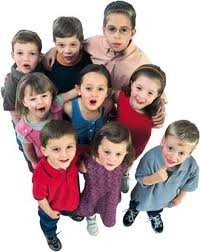|
Self- Esteem and Self-DislikeSelf-dislike stems from a comparison of yourself to others and a distorted belief about yourself. So much of what we expect of ourselves comes from the people around us, the people we believe in, the actors and actresses who play in the movies, television or commercials, or the dolls girls play with, depicting what we "should" be like or what we "should" look like. The word "should" points to an all-knowing authority that we must obey and believe. Wow! What a powerful force that beckons us to be dissatisfied what we see in the mirror. Each of us must take back that power and look at ourselves with clear vision and compassion. We must start to tell ourselves the truth and believe what is true about ourselves. I suppose that people believe that they must be perfect. Perfect in body and mind, in words and actions, like so many actors and actresses are projected to be. This image of perfection is impossible to replicate, yet so many people are trying and failing to do so. Please give it up. You are destined for failure every time. We can never live up to the Hollywood hype of what an individual "should" be.
Self-esteem is central to good mental health and physical health. Self-dislike or self-hatred degrades health and performance. Self-dislike contributes to: depression, anxiety, stress, psychosomatic illnesses like headaches, fatigue, and insomnia. It can promote hostility, spousal and child abuse, alcohol and drug abuse, and social difficulties like withdrawal and loneliness. Self-dislike is focusing on the externals of life instead of the internal core value of all humans. All humans are a true miracle. By looking carefully at the human biology of a man or a woman, this can just about take your breath away. Just look at the intricacies of the brain, or eyesight or the gift of hearing, or bearing and birthing a child. We are a walking miracle. Find your value in that!

Your good parental model is the number one reason for people with self-esteem. Parents of children with self-esteem have high standards and expectations that are clear, reasonable, and consistent. These parents are loving and express interest in what their children are doing and who their friends are. By this, parents are saying to their kids, "I trust you, I believe in you and value you". Great! But what can I do if I didn't have good role models of self-esteem growing up?

To change from self-dislike to self-esteem we must recognize and replace self-defeating thoughts. First review the 15 ways we distort our thinking.(find the menu button for distorted thinking) Our negative, depressing, distorted thinking can erode our sense of worth. We need to view our core worth accurately. At the core of our being, we are infinitely valuable. Some people spend their whole life trying to look good on the outside to cover up a feeling of worthlessness or shame on the inside. They are always seeking something to fill the void. We must separate our core worth from our externals. When our self-worth is equal to our externals, our self-esteem rises and falls with the ups and downs of events. Some examples of externals are: energy, appearance, strength, intelligence, race, skills, talents, wealth, fitness, health, car, job, spouse etc. Hopefully you can see that all these externals can be lost or gained, and if our self-esteem is based on them, we are going wear ourselves out chasing after all the externals. By recognizing our worth as intrinsic, no matter what we go through in life, we are going to be ok. |